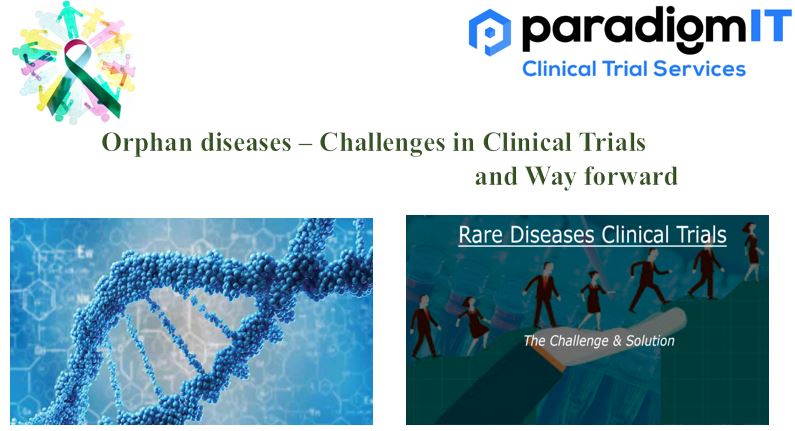Orphan diseases are rare diseases that are less common in the frequency of occurrence but cause a significant burden on the health care systems. Even though there is no straightforward definition for rare diseases, each country has their definition. For instance, in the European Union, a disease that affects less than 1 in 2000 of the population is categorized as rare, whereas in the USA, a disease that affects less than 1: 200000 is rare.
Orphan diseases are more complex since they are difficult to group into a single homogenous basket. Despite the challenges, research scientists have broken all barriers to make significant progress and have developed more than 300 drugs for rare diseases. But this can only partly address the issue as we have more than 7000 diseases under the designated orphan diseases umbrella. We will discuss the several odds that Clinical researchers face while they strive to discover new drugs for orphan diseases and possible ways to overcome the hurdles.
Challenges in Clinical Trials for Orphan Diseases:
- Small Patient Populations: The small number of patients with rare diseases makes it challenging to conduct clinical trials with sufficient statistical power to generate meaningful results.
- Heterogeneity: Patients with rare diseases often have a wide range of symptoms, disease severity, and genetic mutations. This can make it difficult to identify patients who are suitable for a clinical trial and to evaluate the efficacy of a treatment. Additionally, it can be challenging to find suitable control groups since the disease is so rare, and there may not be a suitable comparison group available.
- Lack of Natural History: In many cases, there is little or no information available about the natural history of a rare disease, which can make it difficult to develop appropriate endpoints for clinical trials.
- Regulatory Hurdles: The regulatory approval process for orphan drugs is often more complex and time-consuming than for drugs that treat more common diseases. This can delay the development and approval of treatments for rare diseases.
Ways Forward:
- Collaboration: Collaboration between researchers, clinicians, patient advocacy groups, and industry can help overcome the challenges of conducting clinical trials for rare diseases. Such collaborations can help in the identification of eligible patients, sharing of data and resources, and the development of appropriate endpoints.
- Innovative Trial Designs: Innovative trial designs such as adaptive trials, basket trials, and umbrella trials can help address the challenges of small patient populations and heterogeneity. These designs allow for the inclusion of multiple subgroups of patients, and the use of Bayesian statistics to adapt the trial design based on the accumulating data.
- Use of Real-World Evidence: The use of real-world data from patient registries, electronic health records, and other sources can help provide natural history data and support the design and implementation of clinical trials for rare diseases.
- Regulatory Incentives: Regulatory incentives such as orphan drug designations, accelerated approval pathways, and priority review can help expedite the development and approval of treatments for rare diseases.
Rare diseases, however, are a ripe subsegment for clinical research. The use of historical control data, simulation/modelling, optimal data sharing and utilization of novel statistical tools were the other proposed innovations for navigating the regulatory challenges and possibly developing new drugs and devices for rare diseases.
For more information –
Visit our website – www.paradigmit.com
Or you can write us at ask@paradigmit.com
Follow us for more – https://www.linkedin.com/company/paradigmittechnologyservices/?viewAsMember=true


